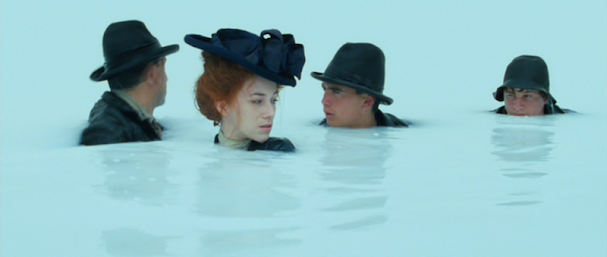The Golden Door & The Godfather
Written by: Lesly Almonte Norman
The Golden Door
Emanuele Crialese’s film, The Golden Door (2006) orbits around a Sicilian’s family departure from Italy to the United States with the mentality that they are heading into a land where the vegetables are massive, the rivers are filled with milk, and money rains from the skies. This film visually portrays the claims of “The American Dream” which I found incredibly interesting and quite comical especially since my parents are immigrants themselves. The father telling his two sons, “We have to arrive in America looking like princes” stood out to me because Dominicans have this same mentality when they’re going back to the Dominican Republic to visit because they have to make people believe they are doing well in the United States. This just furthers that belief that the United States is this land in which you are walking down the street and pulling money off of trees—it is a fantasy that people in other countries have conjured in their minds. My father came to the United States first in search of better employment; followed by my mother and brother, and since being in this country only my brother knows how to speak English fluently. Whereas my father and mother have lived in the United States knowing barely any English and managed to survive on their mother tongue—their hard work and struggle lights a fire in me to do better not only for myself but for our family. There were aspects of this film that are so powerful like the scene in which the people on the boat part with the people on the dock. It is heartbreaking to see because they are now divided into two classes of people—those that chose to venture into the New World and those that remain in the Old World. Like my parents, the people on the boat will most likely not get to experience the promises of the American Dream.
One of my favorite stills from the film, the magical realistic elements in this film tie together the idea of the American Dream being faulty and extremely exaggerated by foreigners.
The Godfather
Francis Ford Coppola’s film, The Godfather (1972) centers around the dynamics of the Corleone family and the Italian mafia that highlights American codes of business and masculinity. It is evident in how men are the centerpiece of this film and occupy the most screen time; this film is about how Italian American men must put the interest of their family above their own morals—which I found within Michael. Michael is an honored veteran with strong morals and slowly throughout the course of the film, he begins to soak his feet further into the mafia family business. In doing so, he becomes a darker version of himself which one can interpret that the film is communicating that there is a cost when becoming powerful in America. Don Corleone, played by the brilliant Marlon Brando, tells Michael, “I never wanted this for you. I wanted you to be Senator Corleone.” This was a touching moment, it showcases how Don Corleone wanted more for his son which is a common sentiment especially for first and second generation immigrant families. Despite the violence found within the film, this film truly centers around the themes of family and loyalty, the film opens with Connie’s wedding to Carlo as Don Vito Corleone listens to requests. The film concludes with Michael being referred to as Don Corleone with the door to his office being closed blocking Kay from the business that is occurring within that room. The American codes of business within The Godfather show audiences that Italian Americans put family interests first as a form of protection. There is strength in being united as a family and Don Vito Corleone understands this, “I spent my life tryin’ not to be careless. Women and children can be careless, but not men.” This quote also lends itself to the ideas of masculinity, men have to be strong and be the decision makers—we see this in Sonny as he tries to fill his father’s shoes when he is gravely injured and we see this in Michael as he makes harsh decisions towards the end of the film such as killing the dons of the Five Families.



Comments
Post a Comment